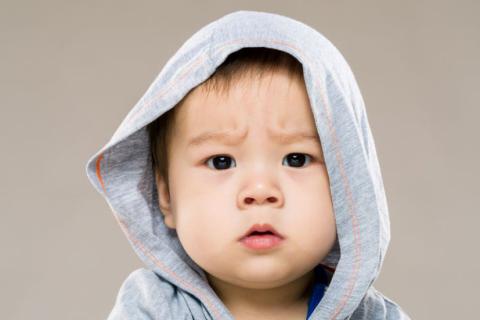My son was always a smiling, happy baby. Now I know what you’re thinking as you read this article, you’re expecting me to describe some kind of regression or lack of skills that alarmed me, because after all, my article discusses the neurological disorder autism. But this article isn’t about any regression, although the latter may be true. This article is about our experience and the possible reason there is such a high diagnosis of autism and why sometimes those children as they grow older seem to lose that diagnosis.
Let me start out by saying, for the most part that I believe that the majority of cases of autism are diagnosed correctly. However, due to the DSM diagnostic criteria changing in 2013, an umbrella designed to catch those that maybe ten years ago weren’t on the spectrum, it’s catching some children who maybe didn’t have autism to begin with.
My son was truly a happy baby. He smiled at seventeen days old, walked at thirteen months old, made great eye contact and was social and affectionate. He lacked speech, but we assumed it was because he had twelve ear infections from birth to three years old. He did point to objects he was interested in, however, these skills were delayed by several months. His speech was also slow to progress so the pediatrician we were seeing at the time suggested an evaluation by an educational psychologist because my son also had trouble following directions and would sometimes growl the few words he knew.
In 2012, my son saw the educational psychologist at this particular center three times. Each time the doctor saw him, she said he was social and there were no signs of autism. Then came 2013, the year the diagnostic criteria changed. My two-and-a-half year old, very tall son was cranky and angry that day. Because of his size, his temper seemed larger than life. The psychologist immediately looked alarmed. “This doesn’t seem right!” she said. She then tried to talk to him but she didn’t seem to be able to get his attention. As he played with toys, he stuck a hand up to her face to block her because she was really annoying him. Trying once more to get his attention, the doctor tried a quick ‘peek-a-boo’ game that he normally loved but he was not wanting to play with her. Then she said the dreaded words… “I think he may have autism.” I was in shock. She had already spent several hours with him and had suddenly come to this conclusion today after just thirty minutes. I tried to argue with her that this was just a bad day—but the doctor had already made up her mind.
Two months before my son turned three, the educational psychologist under the new DSM, performed what is called an ADOS (Autism Diagnostic Observation Test). During the test, she picked apart everything my son did. For example, he had very few words but was excited when the doctor blew up a balloon and let it go. He said, “More, more!” which to me seemed to be the right response but the doctor wrote down “repetitive”. When my son found a broken toy and wanted to know why the lid was stuck…. He said, “It’s stuck, it’s stuck!” and his ADOS score went up. He was happy through part of the test but he also sounded like a broken record with the few words he was repeating.
In October 2013, my son was diagnosed with moderate classic autism, not mild, but moderate autism. The report said he would need substantial help for the rest of his life. We were shocked. If he had moderate autism, why didn’t we or any of our friends see it? We wondered if maybe everyone was afraid to tell us the truth. With this diagnosis, would he always be repeating words? What did his future hold? I reiterated again to the doctor that my son liked other children and was very aware and social. However, the doctor disagreed and said we were in denial.
I wanted to do the best thing for my son. I wanted him to be able to attend the school his sister was attending, have friends and make his own choices. Scouring the Internet I looked for articles on recovery and did not see many. However, I did see that early intervention for autism had the best results before a child turned five, so we enrolled my son into the recommended program. The month my son turned three, he started attending a preschool for high functioning autistic children six hours a day, five days a week. My son learned to be calm, he stopped his growling, his tantrums decreased and his speech erupted in that time from twenty words to a complete vocabulary. But whether this was because of the school or just my son learning at his own pace is something up for discussion. Once my son turned four, his behaviorist discharged him because he had no more issues. His diagnosis at the center became inactive and he started attending the same school as his sister, without an aide or any help.
This past December, we had my son, who is now six, evaluated again by another psychologist at the same center. This time they found no signs of autism.
Today as we walk over to my son’s classroom, his friends all yell his name. They gravitate towards him because he’s full of personality and loves to talk.
I don’t think what happened with my son was a miracle although I am thankful every day. I do think though that there is a hypersensitivity to the issue and maybe that’s not a bad thing. Maybe having our story out there will help other parents that are in the same boat we were in.
Did my son recover? Perhaps it was the early intervention. I don’t think we will ever know.




